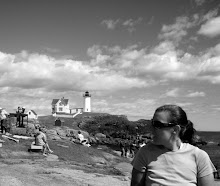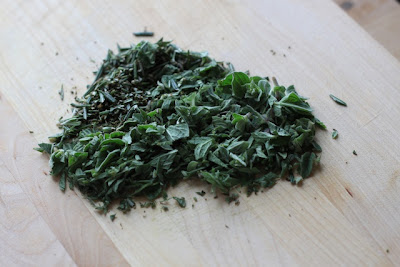In this memoir, Gabrielle Hamilton proves that she is as good a writer as she is a chef and restaurateur. The book spans from her early life is a kid through some rough teenage and adult years, to the present, where she has a successful restaurant, a sort of husband, and two sons. Those expecting an obsessive and vivid focus on food will be disappointed. This book is about Hamilton, her family and the challenges and choices that made her who she is today. Any foodie with back of the brain dreams of some day starting a restaurant probably wanted more of a how-to in this book about how to start and run a successful restaurant. Especially since Hamilton’s is an improbable story – she spent years working in catering kitchens and as a chef at a summer camp in Western Mass. And boom, a vacant restaurant space in the East Village becomes and available and Prune is born. But this book isn’t really about Prune, it is about family I think. The book starts with Hamilton’s recollection of a quirky but somewhat idyllic childhood – surrounded by many siblings in a big house in the country. Her parents are characters – her French mother, passionate about food and how things certain things should be done – but a somewhat hands off parent. Her father, a hippy set designer with big ideas. The family struggled for money, but at first it seemed to not affect the happy if unconventional lives they led. But then Hamilton’s parents break up – which seems to happen over night – and everything is shattered. Hamilton, the youngest of her siblings, is basically left alone with her slightly older brother for a summer. She has to figure out how to find money for food on her own in her early teens. Her mother disappears to Vermont and her Dad disappears into his own depression, and she becomes an adult at 13. Not surprisingly, she becomes a bit of a delinquent, getting in to drugs, and moving with a fast crowd. For the next 10 years or so she struggles through school, going to college, dropping out, eventually moving to New York, working in bar, doing more drugs, stealing from her employer and eventually getting arrested. She eventually finishes college, gets a creative writing masters in Michigan. The reader sort of gets to know her during these portions of the book – but to some extent what we get is surface I think. We never hear about what Hamilton wrote during her time at Michigan but she has funny and cutting take downs of her fellow students. At times Hamilton is likable in roughness and at times she comes across as uncomfortably harsh. I felt this in particular in a chapter later in the book when she travels to Vermont to see her mother, who she hasn’t seen in 20 years, with her sort of husband Michel. At the beginning of the book it is clear how much Hamilton loved her mother, and I can’t imagine how devastating and destructive it must have been when her mother abandoned her and her siblings. But the vitriol we get in the chapter about her mother to some extent comes out of nowhere – we haven’t heard about her for a while, just that Hamilton hadn’t spoken to her in 20 years (understandable under the circumstances). But the almost petty negativity that comes from Hamilton in this chapter (snobbishly picking on what her mother drinks and wears) was a major turn off for me. My mother never left me to fend for myself so I can’t really blame her, but I kinda wanted to put the book down after that chapter. I also felt this a bit with her dismissive attitude about leaving her girlfriend of many years (who moved to NYC from Michigan with her) to have an affair and eventually marry an Italian who she sort of liked who needed a green card. I kept reading though, and Hamilton’s sharp edge is in some circumstances pretty spot on and hilarious – like her railing description of the NYC green market scene. I think Hamilton revealed most about herself in the chapters about her marriage to Michel. It started as an affair with a customer, turned into a marriage for the purpose of a green card. The couple lived separately, but hooked up and eventually had two children together. Hamilton really shows her vulnerability and she wistfully admits that she wants this marriage to be more than it is. Much of the chapters about Michel and her sons are about the summer month that Hamilton and Michel spend in Italy with Michel’s family. Hamilton loves this family fiercely, especially Michel’s mother. Her passion for this family and the time she spends with is a chance for Hamilton to get back what she lost when her close family wrecked itself. Hamilton is a deeply interesting and unique person, and this, along with her clean writing style, makes this an enjoyable, if not wholly satisfying, book.
Red Wine Marinated Lamb Chops and Fresh Spring Peas
I just through this together like I would make a weeknight dinner, so it isn’t some complicated recipe. I tried to use elements from the book, and since it is the beginning of April, I was inspired by spring! First, the lamb – one of the most memorable parts of the book is Hamilton’s description of the annual party her family threw where they roasted a whole lamb on an open flame. The lamb was marinated with oil, garlic and rosemary. Since I don’t have an backyard in which to roast a whole lamb over a fire, I went with marinated lamb-chops – I marinated them with oil, rosemary, and fresh oregano – this ingredient was inspired by the time Hamilton spent in Greece, where oregano grew on the dry hills and she smelled it in the air. I also marinated them in red wine – to represent the blood in the title of the book. To go along with the spring lamb, I found some beautiful spring peas. Hamilton mentions peas at least twice in the book – once, recollecting her childhood trips to the local butcher with her father to get the whole lamb – the butcher also had a garden and sold peas – she would sneak them and when the butcher found her munching on his peas, gave her some more. Peas turn up again in Hamilton’s hilarious skewering of the modern NYC farmers market scene, where there are screaming signs at the stands saying “DON’T TOUCH THE PEAS.” This juxtaposition between the attitude of the old school butcher and today’s organic farm to table crowd is really an illustration of Hamilton’s appealing (to me at least) attitude about food – she wants real, homegrown, local food but without all the attitude, preciousness and judgment. Anyhoo, I just simply blanched the beans and served them unsalted butter and salt. A great spring dinner.
Ingredients
2 -4 lamb chops (I used shoulder chops because the rib chops were insanely expensive at Whole Foods this week, I prefer the rib chops, less fatty)
1 cup of red wine
2-3 tablespoons of olive oil
2 tablespoons chopped fresh rosemary
2 tablespoons chopped fresh oregano
salt and pepper
Shelled fresh peas, a large bag full (1lb?)
Salt and pepper
Butter to taste
For Lamb: In a nonreactive dish or plastic baggie, combine the oil, red wine, herbs, salt and pepper. Rub into the lamb. Marinate for at least an hour and preferably longer, I did over night. Heat a grill pan or skillet at high heat till very hot (this would obviously be fabulous grilled, so feel free to do that). Remove lamb from marinade and pat dry so you get a nice sear. Using tongs, put lamb on grill pan, and cook on each side about 4-6 minutes, depending on how you like your lamb. Remove to a plate and let rest while you cook the peas.
For the peas: Shell the peas. Boil some water, put the shelled peas in the boiling water and cook for about 1 – 3 minutes, till bright green and tender. Remove and put in a ice water bath to stop cooking. Serve with salt and pepper and butter.
















Great information! I enjoyed this one, and many of the other posts you've been putting out lately.
ReplyDeleteGREAT WORK KEEP IT UP
ReplyDelete